

In this weekly post, we feature helpful research tools and recent articles of interest to the legislative community.
- Consider the unauthorized immigrant population in the U.S. (Pew Research Center, November 27, 2018)
- Explore the state of the current U.S. military. (The Heritage Foundation, ©2019)
- Read about how the connotations of the word "political" have changed over time. (OUPblog, November 23, 2018)
- Examine how shifting economic activity affects the prosperity of different communities and regions. (The Hamilton Project, September 2018)
- "Public flagships are offering more middle-income scholarships. What gives?" By Chris Quintana. Chronicle of Higher Education, November 9, 2018, p. A32.
Highlights financial-aid packages from public flagship universities aimed at students from middle-income families. Mentions the University of Texas at Austin has expanded income limits for students eligible for financial aid. - "Rowlett condemnation case tests post-Kelo statute." By Janet Elliott. Dallas Business Journal, November 9, 2018, p. 9.
Reports on a pending case before the Texas Supreme Court, KMS Retail Rowlett, LP v. City of Rowlett, Texas, which examines the limitations placed on the use of eminent domain codified in Texas Government Code § 2206.001. Related information at: http://www.search.txcourts.gov/Case.aspx?cn=17-0850&coa=cossup and https://statutes.capitol.texas.gov/Docs/GV/htm/GV.2206.htm#2206.001. - "Farming in America: Tough row to hoe." Economist, November 10th-16th, 2018, pp. 67-69.
Examines the impact of President Trump's trade policy on American agriculture. Expects farm incomes to drop by thirteen percent this year, as more than a fifth of agricultural exports face new tariffs. - "Post-Wayfair options for states." By Joseph Bishop-Henchman, Hannah Walker, and Denise Grabe. Journal of MultiState Taxation and Incentives, November/December 2018, pp. 6-19, 46, 48.
Describes the effect of the United States Supreme Court's decision in South Dakota v. Wayfair on state Internet sales tax laws and presents a "Wayfair checklist" and policy choices for state legislators. Characterizes Texas as a "steady yellow light" state, meaning it should only proceed after making legislative changes, including joining the Streamlined Sales and Use Tax Agreement [SSUTA]. Related information at: https://www.supremecourt.gov/opinions/17pdf/17-494_j4el.pdf. - "Would state-based single-payer health insurance cure what ails?" By Simon F. Haeder. Milken Institute Review, 4th Quarter 2018, pp. 43-53.
Describes the characteristics and cost savings of a single-payer health insurance system, as well as the potential for single-payer to develop in the states amid the limits of federalism and the complexity of the health insurance market. - "Firearm homicides and suicides in major metropolitan areas — United States, 2012–2013 and 2015–2016." By Scott R. Kegler, Linda L. Dahlberg, and James A. Mercy. Morbidity and Mortality Weekly Report (MMWR), November 9, 2018, pp. 1-5.
Reports that firearm homicide rates in large metro areas and the national rate overall began increasing in the years examined, and firearm suicide rates have continued to increase in large metro areas and the nation overall. - "Employee contributions to public pension plans (2018)." National Association of State Retirement Administrators, October 2018, pp. 1-12.
Examines employee contribution plan designs across states, policies, and recent trends. Includes a table of employee contribution rates by state, including Employees Retirement System of Texas and Teacher Retirement System of Texas. - "Education as reeducation." By Frederick M. Hess and Grant Addison. National Review, November 12, 2018, pp. 48, 50, 52.
Argues school reform groups, such as UnboundEd, have turned to ideological agendas and left-wing activism. Suggests a focus on implicit bias has turned school reform from a unifying pursuit to a divisive exercise. - "Too much democracy." By Yascha Mounk. New Yorker, November 12, 2018, pp. 46, 48-51.
Considers the findings in a new book, Responsible Parties: Saving Democracy from Itself, which suggests strong political parties would do better than activists in developing a long-term view aimed at rational policy choices instead of irresponsible promises. Points out the book's recommendations ignore large social and economic trends which might be more important. - "Preparation for capable citizenship: The schools' primary responsibility." By Michael A. Rebell. Phi Delta Kappan, November 2018, pp. 18-23.
Points out the highest courts in a majority of states have stated that "preparation for capable citizenship" is a primary purpose of the education clause in state constitutions. Argues schools must create environments that respect pluralism and individualism while instructing in civic knowledge and skills and providing participatory experiences. - "50% less energy in transportation by 2050: Alliance to Save Energy 50 x 50 Commission: Reinventing U.S. mobility." Public Utilities Fortnightly, November 1, 2018, pp. 76-81.
Features a discussion on the Alliance to Save Energy's 50 x 50 Commission and their recent report, which compiles a set of consensus recommendations for policymakers and the private sector to reduce transportation-related energy use 50 percent by 2050. Report at: https://www.ase.org/sites/ase.org/files/ase-50x50-full_policyreport-final.pdf. - "Could plastic driver's licenses become a thing of the past?" By Jenni Bergal. Stateline (Pew Charitable Trusts), November 20, 2018, pp. 1-6.
Reports several states have started digital driver's license programs while other states are studying or testing digital licenses. Discusses Louisiana's program, the first to make digital licenses available. Notes concerns about privacy and data security risks. - "Reflections of Hurricane Harvey: One year later." By Jessica Hovel. Texas Builder, November/December 2018, pp. 12-18.
Describes Hurricane Harvey rebuilding from a construction industry perspective, as well as infrastructure funding and flood mitigation in Houston and along the Texas Gulf Coast. - "Evening out the scale." By Joey Berlin. Texas Medicine, November 2018, pp. 44-46.
Describes the lack of transparency that can lead to surprise medical bills, also referred to as balance billing. Explains the Texas Medical Association's plans to advocate in the next legislative session for more accountability from insurers, while preserving physicians' right to bill for their services. - "FCC order could remove public power pole attachment exemption." By Paul Ciampoli. Texas Public Power, October 2018, pp. 3, 6, 9.
Explains a recent declaratory ruling and order from the Federal Communications Commission [FCC] addressing 5G infrastructure and other advanced wireless services, which could affect the oversight of electric utility pole attachments. Considers the potential impact of this ruling and order. Related information at: https://docs.fcc.gov/public/attachments/FCC-18-133A1.pdf.
Check out and delivery of New & Noteworthy titles is available to legislative staff in Capitol and District offices. To arrange check out and delivery of any of these items, you can submit an online request through the New & Noteworthy page on our website, contact the library at 512-463-1252, or use our PDF request form.

1. Capitalism in America: A History
By Alan Greenspan and Adrian Wooldridge
Traces American history through the lens of capitalism and its influence on the development of the United States, as interpreted by Alan Greenspan, former chair of the U.S. Federal Reserve, and Adrian Wooldridge, the Economist's political editor. Employs three organizing themes in considering economic history: productivity, creative destruction (displacing previously productive assets and their associated jobs with newer technologies and their jobs), and politics. Argues that entitlement and financial system reforms are necessary to restore America's "fading dynamism."
Penguin Press, 2018, 2018. 450 pages.
330.973 G853C 2018
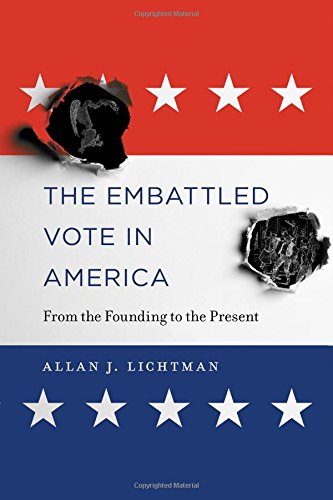
2. The Embattled Vote in America: From the Founding to the Present
By Allan J. Lichtman
Delves into the history and politics of the vote in America from the drafting of the Constitution to present day. Argues that when the Founding Fathers gave control over elections to individual states, they made a critical error that resulted in restrictive consequences for minorities, women, and democracy throughout American history. Addresses voting rights, voter ID laws, voter purges, gerrymandering, and more.
Harvard University Press, 2018. 257 pages.
324.6 L617E 2018
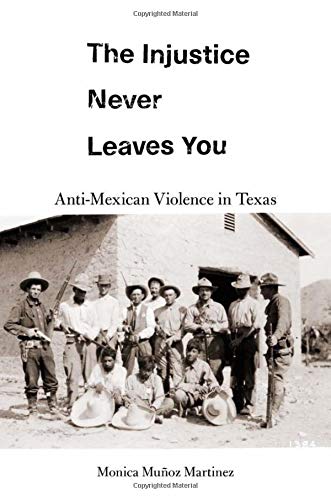
3. The Injustice Never Leaves You: Anti-Mexican Violence in Texas
By Monica Munoz Martinez
Sheds light on the neglected history of anti-Mexican violence in the 1910s Texas-Mexico borderlands. Describes specific incidents and provides insight into collaboration among authorities and vigilantes to incite violence and cover up crimes. Includes an examination of Rep. José T. Canales' 1919 efforts to bring criminal charges against several Texas Rangers for their mistreatment of Mexican Americans. Calls for continued efforts to recover histories of racial violence and for a public reckoning with violence.
Harvard University Press, 2018. 300 pages.
323.1168 M366I 2018
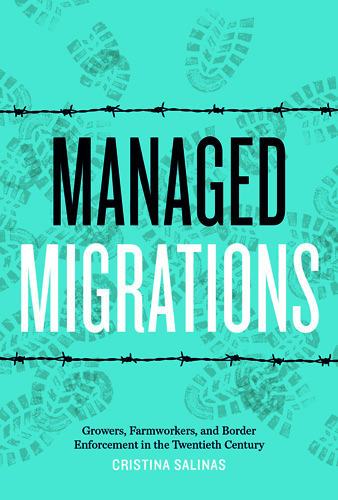
4. Managed Migrations: Growers, Farmworkers, and Border Enforcement in the Twentieth Century
By Cristina Salinas
Examines the relationship between immigration laws/policies and agricultural laborers and farmers in Texas during the 1940s and 1950s. Explores how the migration of Mexican workers was handled on a local level by the border patrol, farm owners, and Mexicans working the fields. Argues that these groups, not necessarily the federal government, set up the framework for border enforcement policies.
University of Texas Press, 2018. 208 pages.
325 SA33M 2018
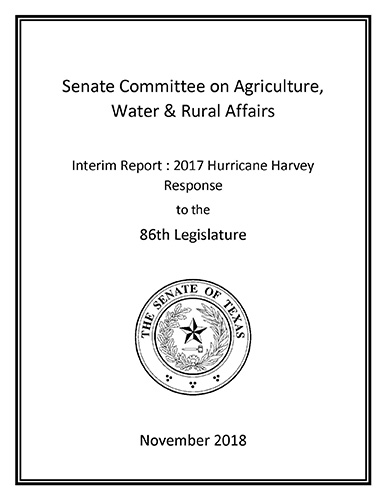
5. Interim Report: 2017 Hurricane Harvey Response to the 86th Legislature
By Senate Committee on Agriculture, Water & Rural Affairs
Highlights the committee's investigative work on interim charges relating to flood planning and response. Addresses the devastation of Hurricane Harvey, jurisdictional challenges during flooding events, funding for flood mitigation and prevention projects, and the creation of a proactive state flood plan. Includes committee testimony and policy recommendations.
Senate Committee on Agriculture, Water & Rural Affairs, 2018. 140 pages.
Online at: https://lrl.texas.gov/scanned/interim/85/Ag86r.pdf
L1836.85 AG86R
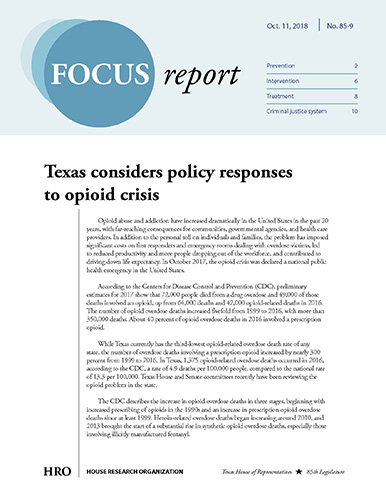
6. Texas Considers Policy Responses to Opioid Crisis
By House Research Organization
Analyzes the current status of opioid abuse and addiction in the country, emphasizing the increase in opioid-related overdose deaths. Summarizes basic facts on current treatments, interventions, and prevention strategies. Reviews policies that may be considered by lawmakers in the 86th Legislature to aid in the reduction of opioid-related misuse, overdoses, and deaths.
House Research Organization, 2018. 11 pages.
Online at: https://hro.house.texas.gov/pdf/focus/opioids.pdf
L1801.9 ST94 85-9
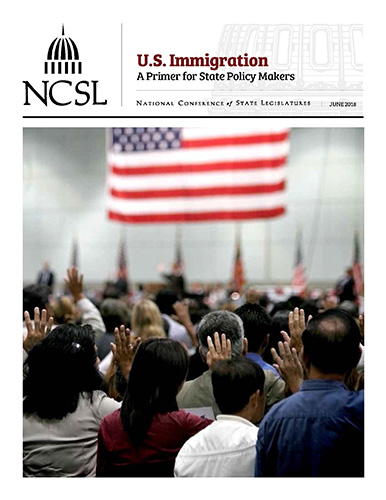
7. U.S. Immigration: A Primer for State Policy Makers
By Anne Morse
Presents an overview of current immigration and refugee policy in the United States. Examines the role of states and developments in state immigration legislation. Concludes with a discussion of the fiscal and economic impact of immigration. Includes a list of federal actions on immigration for 2017–2018.
National Conference of State Legislatures, 2018. 32 pages.
Online at: http://www.ncsl.org/Portals/1/Documents/immig/2018_Immigration_Primer_32492.pdf
331.67 N213I 2018
- Report on School District Mandates: Cost Drivers in Public Education, Texas Association of School Administrators, Texas Association of School Boards, Updated January 2017
- Report to the 85th Legislature (Charge 3 – Efficiency/performance review of all public schools in Texas), Senate Committee on Education, November 2016
- Report to the 82nd Legislature (Charge 4 – Cost drivers in public education), Senate Committee on Education, December 2010
- Committee PowerPoint Presentation, Senate Select Committee on Property Tax Reform, September 20, 2018
- Property Tax Limitation Regimes: A Primer, Tax Foundation, April 2018
- Interim Report to the 85th Texas Legislature (Property tax process), Senate Select Committee on Property Tax Reform & Relief, November 2016
- Truth-in-Taxation: The Guide to How Property Tax Rates Are Set, Texas Taxpayers and Research Association, August 2016
- Truth-in-Taxation: Tax Rate Adoption, Texas Comptroller of Public Accounts
- Texas Tax Code §§ 26.04-26.05, Submission of Roll to Governing Body; Effective and Rollback Tax Rates
- Interim Report to the 81st Texas Legislature (Charge 1 – Property tax appraisal system), Senate Finance Subcommittee on Property Appraisal and Revenue Caps, January 2009
- Appraisal Review Boards, Texas Comptroller of Public Accounts
- Appraisal Review Board Training, Texas Comptroller of Public Accounts
- Texas Tax Code §§ 6.41-6.43, Appraisal Review Board
- Texas Tax Code § 5.041, Training of Appraisal Review Board Members
- School Property Tax Reform: An Analysis of Options, Texas Public Policy Foundation, November 2018
- Raising the Sales Tax Rate Is Not the Way to Lower School Property Taxes, Center for Public Policy Priorities, April 2018
- Property Taxes: The Bad, The Good, and The Ugly (Replacing property taxes with sales tax), Real Estate Center, Texas A&M University, November 2013
- "When Have States Saved Enough for a Rainy Day?," Stateline, Pew Charitable Trusts, October 4, 2018
- "The Texas Legacy Fund" (Economic Stabilization Fund), Fiscal Notes, Texas Comptroller of Pubic Accounts, October 2018
- Fiscal 50: State Trends and Analysis (Reserves and balances), Pew Charitable Trusts, September 10, 2018
- The Rainy Day Fund: A Resource Designed for Texas to Use, Center for Public Policy Priorities, Revised April 2018
- Economic Stabilization Fund (ESF) Overview (Infographic), Legislative Budget Board, March 2018
- Leaky Umbrella: The Need to Reform Texas' Rainy Day Fund, Texas Public Policy Foundation, October 2016
- Budget Processes in the States (Table 14: Budget Stabilization or "Rainy Day" Fund - 50-state requirements), National Association of State Budget Officers, Spring 2015
In this weekly post, we feature helpful research tools and recent articles of interest to the legislative community.
- Review hate crime statistics from 2017. (Federal Bureau of Investigation, Fall 2018)
- Consider whether and how electric scooters should be regulated. (Stateline, November 13, 2018)
- Explore new activity guidelines for Americans. (JAMA, November 12, 2018)
- Read about the "age wave" and the expectation that more Americans than ever will be living with Alzheimer's disease. (National Conference of State Legislatures, November 2018)
- "Bracing for the blitz." By Liz Hayes. Church & State, November 2018, pp. 8-10.
Describes the Religious Right's new state-based strategy, "Project Blitz," the movement's effort to push religious values legislation through twenty model bills. Points out the Project Blitz model bills and number of similar state proposals considered in 2018. - "The American economy: What goes up." Economist, November 3rd-9th, 2018, pp. 67-68.
Examines factors that threaten economic growth, including a downturn in the housing market due to construction labor shortages, uncertainty about the trade environment, and speculation that the Federal Reserve will raise interest rates. - "Is America's next generation of voters ready for the job?" By Alyson Klein. Education Week, October 31, 2018, pp. 1, 12-13.
Discusses results of a survey conducted of 18- and 19-year-olds who have not voted in an election. Presents a profile of the typical respondent who plans to vote for the first time. - "High school attrition improves by two points." By Roy L. Johnson. IDRA Newsletter (Intercultural Development Research Association), October 2018, pp. 1-2.
Summarizes the latest Public School Attrition Study results, noting the attrition rate improved two points over last year but that Hispanic and black students were two times more likely to leave school before graduating than white students. - "SNAP helps almost 1.4 million low-income veterans, including thousands in every state." By Brynne Keith-Jennings and Lexin Cai. Internet Resource, Updated November 8, 2018, pp. 1-5.
Shows that the Supplemental Nutrition Assistance Program [SNAP], formerly known as food stamps, makes a crucial difference for veterans who may be unemployed, working in low-wage jobs, or disabled. Estimates 97,000 veterans in Texas received SNAP benefits in 2015-2017. - "Coercing women's behavior: How a mandatory viewing law changes patients' preabortion ultrasound viewing practices." By Katrina Kimport, Nicole E. Johns, and Ushma D. Upadhyay. Journal of Health Politics, Policy, and Law, December 2018, pp. 941-960.
Uses Wisconsin as a case study in examining the effect of mandatory ultrasound viewing law on the viewing behavior of women seeking abortion care. Reports that the presence of the law affected patients' viewing decision making, with a disproportionate impact on the viewing behavior of black women compared with white women. - "Separated." By Sarah Stillman. New Yorker, November 5, 2018, pp. 42-53.
Reports that more than a quarter of a million children in the United States have a mother in jail and that Oklahoma has the highest rate of women's incarceration in the nation. Profiles the work of Still She Rises, a Tulsa-based public defender office, working exclusively with mothers in the criminal justice system. - "Geometry v. gerrymandering." By Moon Duchin. Scientific American, November 2018, pp. 48-53.
Discusses ways mathematicians can approach redistricting and whether they may uncover gerrymandering via statistical methods. - "Front line: Using primary care to prevent suicide." By Sean Price. Texas Medicine, November 2018, pp. 16-21.
Considers how primary care physicians can identify and help patients who are at risk for suicide. Notes the nationwide shortage of psychiatrists and points out recent legislative reforms designed to improve mental health care in Texas, such as expanded access to telemedicine. - "Too big a step?" By Joey Berlin. Texas Medicine, November 2018, pp. 30-33.
Urges Medicare to reverse "fail first" (also called "step therapy") drug program, which requires physicians and patients to prove certain drugs will not work for them before the health plan will pay for the next "step" up. Commends SB680, 85th Legislature, R.S., for helping physicians quickly override insurers' step therapy protocols. - "Treading water." By Charles E. Gilliland. Tierra Grande, October 2018, pp. 20-21.
Discusses the status of the Waters of the United States rule [WOTUS], which was adopted in 2015. Reports the rule has been challenged, blocked, and revised due to the vocal opposition by landowners, who consider it an unprecedented expansion of land use control.
Summary of the 86th Legislature
| Party | House | Senate | Overall |
|---|---|---|---|
| Democrat | 66 | 12 | 78 |
| Republican | 83 | 19 | 102 |
| Total | 149 | 31 | 180 |
| Gender | House | Senate | Overall |
|---|---|---|---|
| Women | 34 | 9 | 43 |
| Men | 115 | 22 | 137 |
| Total | 149 | 31 | 180 |
Members not returning to the 86th Texas Legislature
| Not Returning | Replacement | ||
|---|---|---|---|
 |
Sen. Konni Burton (R) |  |
Beverly Powell (D) |
 |
Sen. Craig Estes (R) |  |
Pat Fallon (R) |
 |
Sen. Sylvia Garcia (D) |  |
Carol Alvarado (D) |
 |
Sen. Don Huffines (R) |  |
Nathan Johnson (D) |
 |
Sen. Van Taylor (R) |  |
Angela Paxton (R) |
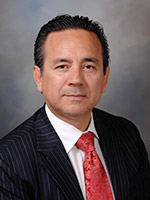 |
Sen. Carlos Uresti (D) | 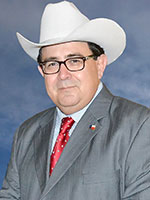 |
Pete Flores (R) |
 |
Rep. Rodney Anderson (R) |  |
Thresa "Terry" Meza (D) |
 |
Rep. Roberto Alonzo (D) |  |
Jessica González (D) |
 |
Rep. Carol Alvarado (D) |  |
Christina Morales (D) |
 |
Rep. Diana Arévalo (D) | 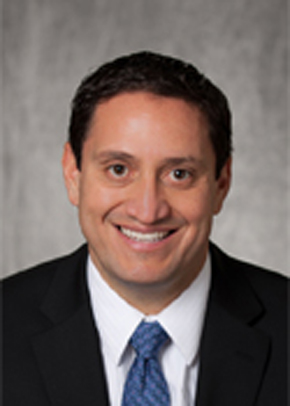 |
Trey Martinez Fischer (D) |
 |
Rep. Cindy Burkett (R) |  |
Rhetta Andrews Bowers (D) |
 |
Rep. Byron Cook (R) |  |
Cody Harris (R) |
 |
Rep. Scott Cosper (R) |  |
Brad Buckley (R) |
 |
Rep. Tony Dale (R) |  |
John H Bucy III (D) |
 |
Rep. Dawnna Dukes (D) |  |
Sheryl Cole (D) |
 |
Rep. Gary Elkins (R) |  |
Jon E. Rosenthal (D) |
 |
Rep. Wayne Faircloth (R) |  |
Mayes Middleton (R) |
 |
Rep. Pat Fallon (R) |  |
Jared Patterson (R) |
 |
Rep. Helen Giddings (D) |  |
Carl Sherman (D) |
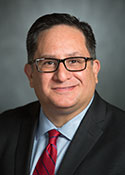 |
Rep. Larry Gonzales (R) |  |
James Talarico (D) |
 |
Rep. Lance Gooden (R) |  |
Keith Bell (R) |
 |
Rep. Jason Isaac (R) |  |
Erin Zwiener (D) |
 |
Rep. Mark Keough (R) |  |
Steve Toth (R) |
 |
Rep. Linda Koop (R) |  |
Ana-Maria Ramos (D) |
 |
Rep. Jodie Laubenberg (R) |  |
Candy Noble (R) |
 |
Rep. René Oliveira (D) |  |
Alex Dominguez (D) |
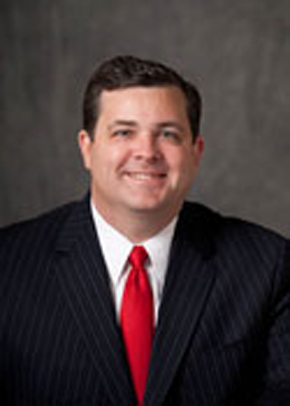 |
Rep. Larry Phillips (R) |  |
Reggie Smith (R) |
 |
Rep. Joe Pickett (D) |  |
Art Fierro (D) |
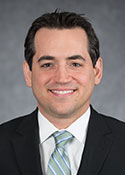 |
Rep. Matt Rinaldi (R) |  |
Julie Johnson (D) |
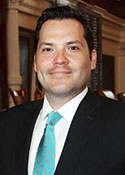 |
Rep. Justin Rodriguez (D) |  |
Ray Lopez (D) |
 |
Rep. Kevin Roberts (R) |  |
E. Sam Harless (R) |
 |
Rep. Mike Schofield (R) |  |
Gina Calanni (D) |
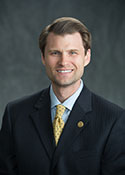 |
Rep. Leighton Schubert (R) |  |
Ben Leman (R) |
 |
Rep. Ron Simmons (R) |  |
Michelle Beckley (D) |
 |
Rep. Joe Straus (R) |  |
Steve Allison (R) |
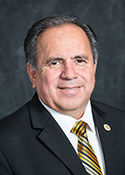 |
Rep. Tomas Uresti (D) |  |
Leo Pacheco (D) |
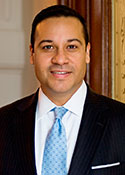 |
Rep. Jason Villalba (R) |  |
John Turner (D) |
 |
Rep. Paul Workman (R) |  |
Vikki Goodwin (D) |
In this weekly post, we feature helpful research tools and recent articles of interest to the legislative community.
- Review election returns in Texas. (Texas Secretary of State, accessed November 7, 2018)
- Track election results in state legislative races. (National Conference of State Legislatures, accessed November 7, 2018)
- Learn how to track federal legislation via email alerts. (Library of Congress, November 5, 2018)
- Read about the current backlog of immigration court cases. (Transactional Records Access Clearinghouse, November 6, 2018)
- "The petrostate of the union." By David Wethe, Rachel Adams-Heard, and Kevin Crowley. Bloomberg Businessweek, October 22, 2018, pp. 31-35.
Analyzes the resurgence of the Permian Basin and how a shortage of workers and investors may hinder companies from maximizing their potential growth. - "How 'Obamacare' premiums are faring." By Rebecca Asoulin. Christian Science Monitor, October 15, 2018, p. 16.
Considers the landscape for 2019 healthcare premiums, finding most states will see smaller increases. Notes there is at least one insurer in each county. Charts the wide variations in premiums and tax credits found among states. - "Spotlight on 'dark' money." By Christa Case Bryant. Christian Science Monitor, November 5, 2018, pp. 24-30.
Highlights the history of Montana's strong campaign finance and disclosure laws. Discusses two Montana cases under consideration by the United States Supreme Court that might affect campaign finance laws in other states. - "What some campuses are doing to help undocumented students." By Andy Tsubasa Field. Chronicle of Higher Education, November 2, 2018, p. A25.
Explains a recent study found that 71 percent of DACA [Deferred Action for Childhood Arrivals] students work while attending college. Mentions the study recommends colleges provide resource centers, along with mental and physical health services. Report at: https://www.thedream.us/wp-content/uploads/2018/10/TheDream.US-In-Their-Own-Words-Report-Oct-2018-1-2.pdf. - "Poverty in California: Amid plenty, want." Economist, October 27th-November 2nd, 2018, pp. 25-26.
Explains how California ended up with America's highest poverty rate. - "Prison: A tale of two states." Economist, October 20th-26th, 2018, pp. 25-26.
Contrasts two states' approaches to prison: Wisconsin's tough-on-crime methods and Minnesota's more progressive reforms. - "Why teachers stay silent about sexual assault." By Arianna Prothero. Education Week, October 10, 2018, pp. 1, 8.
Examines why teachers are reluctant to report sexual harassment and misconduct. Addresses unique features of the teaching profession that make K-12 educators more at risk for abuse. - "Rebirth of a nation: Can states' rights save us from a second civil war?" By Jonathan Taplin. Harper's Magazine, November 2018, pp. 27-35.
Examines the role of the Tenth Amendment in the current political climate and identifies states' rights initiatives on prescription drug costs, marijuana decriminalization, student loan debt, and other policy issues. Mentions Texas. - "Self-enforcing roadways." By Eric Donnell, Kristin Kersavage, and Abdul Zineddin. Public Roads, Autumn 2018, pp. 4-7.
Explains how transportation agencies can design self-enforcing roadways to manage speeds on two-lane rural highways, reducing the severity of speeding-related crashes. Report at: https://www.fhwa.dot.gov/publications/research/safety/17098/17098.pdf. - "Texas moves toward adoption of Uniform Bar." By Ryan Salchert. San Antonio Business Journal, October 26, 2018, p. 7.
Reports that the Texas Supreme Court has accepted a task force recommendation to adopt the Uniform Bar Examination that would allow Texas attorneys to practice law in 33 other states. - "Highs and lows of floodplain regulations." By Luis B. Torres, Clare Losey, and Wesley Miller. Tierra Grande, October 2018, pp. 22-25.
Addresses building regulations recently implemented in Houston as a means to reduce residential damage from flooding. - "Steady as she goes: Texas apartment markets recovering." By Ali Anari and Harold D. Hunt. Tierra Grande, October 2018, pp. 14-19.
Examines recovery of apartment markets in Austin, Dallas, and San Antonio since the Great Recession and the state of Houston's market since the collapse of oil prices in 2014 and in the aftermath of Hurricane Harvey in 2017.
- Prevention and early intervention programs
- Prevention and Early Intervention (PEI) Programs, Texas Department of Family and Protective Services
- Children aging out of foster care
- Services for Youth and Young Adults, Texas Department of Family and Protective Services
- Adoption Support Programs (Post adoption services), Texas Department of Family and Protective Services
- System improvements, especially Trauma Informed Care
- Trauma-Informed Care and Early Identification Will Improve Child Mental Health Treatment (Testimony, House Committee on Public Health), Texas Medical Association, May 17, 2018
- Understanding Trauma-Informed Care In The Texas Child Welfare System, Texas CASA
- Training in trauma-informed system of care
- Trauma Informed Care Training, Texas Department of Family and Protective Services
- Supreme Court of Texas Children's Commission's Statewide Collaborative of Trauma-Informed Care
- Trauma-Informed Care: Final Report, The Meadows Mental Health Policy Institute for Texas, July 26, 2017
- Statewide Collaborative of Trauma-Informed Care (Important documents, child welfare system reform, organizational leadership, cross-systems collaboration, funding, data, & evaluation), Children's Commission, Supreme Court of Texas
- Reports and Resources (see Trauma-Informed Care), Children's Commission, Supreme Court of Texas
- Title IV-E Foster Care Rates FY 2019, Texas Juvenile Justice Department, October 2018
- 24-Hour Residential Child Care Reimbursement Rates (Description of service levels), Texas Department of Family and Protective Services, Effective September 1, 2017
- Proposed Payment Rates for the 24-Hour Residential Child Care Program, Rate Analysis Department, Texas Health and Human Services Commission, July 17, 2017
- Rate-Setting Methodology for 24-Hour Residential Child Care Reimbursements, Financial Services Division, Texas Health and Human Services Commission, June 22, 2017
- Family Foster Care Reimbursement Rates in the U.S.: A Report from a 2012 National Survey on Family Foster Care Provider Classifications and Rates, Child Trends, April 9, 2013
- Harris County Mental Health Services for Children, Youth, and Families: 2017 System Assessment, The Meadows Mental Health Policy Institute, October 30, 2017
- Supporting Youth in Foster Care: Research-Based Policy Recommendations for Executive and Legislative Officials in 2017, Child Trends, February 15, 2017
- "Mental and Physical Health of Children in Foster Care," Pediatrics, Volume 138, Issue 5, November 2016
- Mental Health and Foster Care, National Conference of State Legislatures, May 9, 2016
- Psychotropic Medication Utilization Parameters for Children and Youth in Foster Care, Texas Department of Family and Protective Services, March 2016 (Tables Updated July 2016)
- "The Prevalence of Mental Disorders Among Children and Adolescents in the Child Welfare System: A Systematic Review and Meta-Analysis," Medicine, Volume 95, Number 7, February 2016
- Nursing Facility Requirements for Licensure and Medicaid Certification Handbook, Subchapter E, Residents Rights, Texas Health and Human Services Commission
- State and Federal Statutes and Rules (Nursing Facilities), Texas Health and Human Services Commission
- Texas Health and Safety Code § 242.848, Reporting Abuse and Neglect (electronic monitoring)
- Texas Health and Safety Code Chapter 250, Nurse Aide Registry and Criminal History Checks of Employees and Applicants for Employment in Certain Facilities Serving the Elderly, Persons with Disabilities, or Persons with Terminal Illnesses
- Texas Health and Safety Code Chapter 253, Employee Misconduct Registry
- Texas Health and Safety Code Chapter 260A, Reports of Abuse, Neglect, and Exploitation of Residents of Certain Facilities
- Texas State Board of Public Accountancy
- Texas State Library and Archives Commission
- Texas Funeral Service Commission
- School Land Board
- Veterans' Land Board
- Texas Board of Professional Geoscientists
- The 59th Legislature's Senate State Affairs Committee minutes from 1965, which are the earliest Senate standing committee minutes we have scanned.
- The report and proceedings of the 27th Legislature's State Investigating Committee, provided for in SJR 1, 27th 2nd C.S. (1901). This was an investigation of state government, including findings and testimony of the Treasury Department, General Land Office, Comptroller's Office, various asylums, and other agencies, as well as a report on penitentiaries.
- The Senate of the 47th Legislature considered the State Department of Public Welfare's administration of the Old Age Assistance Program as a Committee of the Whole Senate, February–March 1941, pursuant to SR 19. (Fun fact—this transcript is on onion skin paper.)
- Investigations on concerns regarding textbooks and the University of Texas by the 48th Senate (1943–1944, during and following Homer Rainey's term as UT president) and Texas A&M College by the 50th Legislature (1947, following student demonstrations on funding issues).
- Investigations of the Board of Pardons & Paroles, Texas Good Roads Association, Feed Shortage, and the Texas State Railroad, all in the 1940s.
In this weekly post, we feature helpful research tools and recent articles of interest to the legislative community.
- Read about a newly-released hate crimes website. (U.S. Department of Justice, October 29, 2018)
- Consider legal issues related to bike lanes. (Outside Online, October 27, 2018)
- Track weekly flu activity. (Centers for Disease Control and Prevention, accessed October 31, 2018)
- Explore charts related to various sectors of the Texas and United States economies. (Texas Comptroller of Public Accounts, accessed October 31, 2018)
- "A new way to work." By Mike Cronin. Austin Business Journal, October 26, 2018, pp. 4-6.
Explains how professionals in several industries, including manufacturing and health care, could be doing business differently once a 5G wireless network is established in Austin. - "Leaving bench marks." By Henry Gass. Christian Science Monitor, October 22, 2018, pp. 24-30.
Examines whether judges' personal views can be separated from their legal rulings. Highlights the case of Arkansas Judge Wendell Griffen and his personal anti-death penalty beliefs. - "It's been 2 years since scandal erupted at Baylor: Yet the allegations continue." By Sarah Brown. Chronicle of Higher Education, October 12, 2018, pp. A18-A19.
Summarizes the latest developments in the Baylor sexual assault scandal, including serious allegations against former regent chair, Richard Willis, and a letter from the NCAA providing notice of wrongdoing. - "All the president's men and women." By Rob Boston. Church & State, October 2018, pp. 9-11.
Claims the president's Evangelical Advisory Board, which plays a significant role in administrative policies, is not in compliance with the Federal Advisory Committee Act [FACA]. Explains FACA requirements for presidential advisory committees. - "American shale oil: Peering into the Permian." Economist, October 20th-26th, 2018, pp. 57-59.
Examines whether the American shale industry can deliver both profits and production. Notes that despite its growth, the industry still faces constraints — bottlenecks in the pipeline infrastructure, a long-term labor shortage, and rising equipment costs due to tariffs on steel imports. - "The world economy: The next recession." Economist, October 13th, 2018, pp. 3-12.
Suggests a toxic political environment and constrained central banks will present the greatest stumbling blocks to managing a new global downturn. - "State strategies to meet the needs of young children and families affected by the opioid crisis." By Becky Normile, Carrie Hanlon, and Hannah Eichner. Internet Resource, September 2018, pp. 1-18.
Explores strategies used by child-serving agencies in Kentucky, New Hampshire, and Virginia to respond to the opioid epidemic. Offers information about funding sources and key considerations for states working to improve services for families affected by opioid use disorder. - "Regulating gene-edited crops." By Jennifer Kuzma. Issues in Science and Technology, Fall 2018, pp. 80-85.
Explores policy implications of the second generation of genetically modified crops. - "Year of the strike." By Frederick M. Hess. National Review, October 29, 2018, pp. 20-22.
Highlights recent teacher strikes and advocates for higher pay for talented teachers. Proposes paying for pay increases by trimming bureaucracy, overhauling benefits and getting pension funds on a solvent path. - "School colors." By Hua Hsu. New Yorker, October 15, 2018, pp. 48-56, 58-59.
Discusses the current affirmative action case alleging discrimination against Asian Americans by Harvard University. Profiles the involvement of Texan Edward Blum and includes a history of affirmative action policies. - "Broadband gap — rocket science?: Ending the disparity." By Steve Goodman. Public Utilities Fortnightly, October 2018, pp. 80-81.
Identifies issues regarding disparity in broadband deployment, particularly in rural areas. Discusses ways the Federal Communications Commission [FCC] is trying to address this problem. Related information at: https://www.fcc.gov/5G and https://www.fcc.gov/reports-research/reports/broadband-progress-reports/2016-broadband-progress-report - "Who has the best 'cyber hygiene'?" By Laura Fodor. State Legislatures, September/October 2018, p. 33.
Highlights a report addressing states' security practices. Includes state ratings for residents' cyber preparedness and vulnerabilities to cyber attacks. Related information at: https://www.ponemon.org/blog/the-cyber-hygiene-index-measuring-the-riskiest-states - "If parents get deported, who gets their children?" By Teresa Wiltz. Stateline (Pew Charitable Trusts), October 25, 2018, pp. 1-7.
Reports immigration advocates are calling for greater resources from federal, state, and local officials to assist "grandfamilies" — grandparents, extended family members, or close family friends who are stepping in to care for or raise children separated from undocumented parents who have been arrested or deported. Report at: https://www.gu.org/app/uploads/2018/10/Grandfamilies-Report-SOGF2018.pdf - "'Keep them from harm and injustice'?" By Robert Van Boven. Texas Medicine, October 2018, pp. 4-5.
Examines barriers to transparency of hospital errors in Texas. Outlines physicians' concerns about discretionary abuse of Texas Medical Board policies and procedures. - "Guns in America: The search for common ground begins with listening — to everyone." By Abigail Abrams, et al. Time, November 5, 2018, pp. 26-30.
Explores the history, culture, and controversies surrounding guns in the United States. Includes an interactive feature that presents the views and experiences of 245 different people, including Representative Jonathan Stickland, who represent a wide range of voices on the debate over guns.

